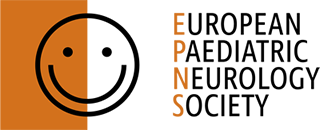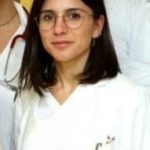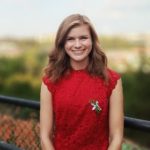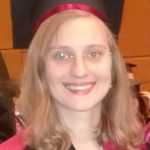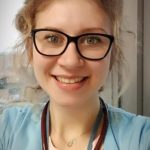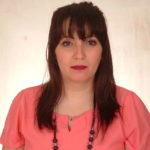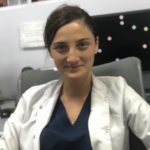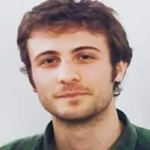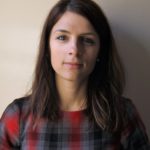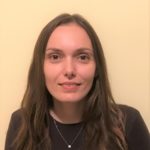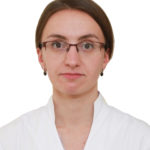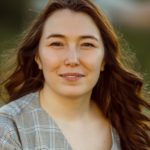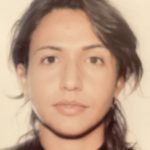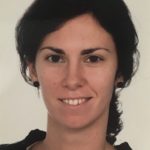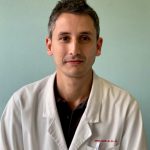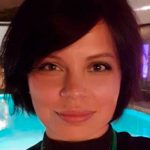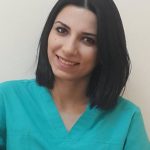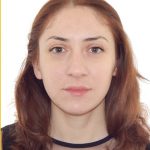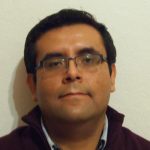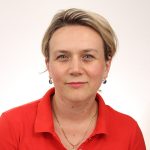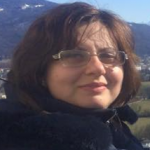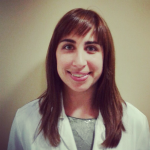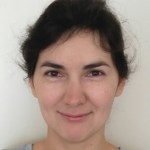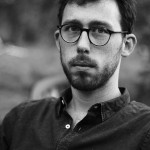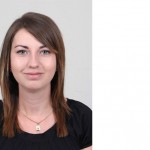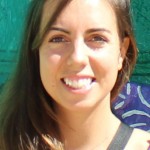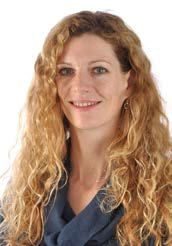8 Fellowships Awarded in November 2023 to take place in 2024
Dr Johanna Wagner: Research Fellowship – Aicardi Award
Dr Johanna Wagner from Germany will be going to University College London, UK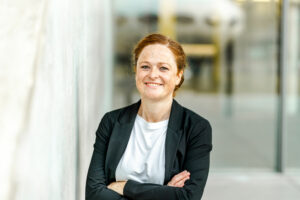
This very special award was given to Dr Wagner for her application which was of an extremely high quality.
I am honoured and very grateful to have been awarded the Aicardi Fellowship by the EPNS. My current research focuses on mild traumatic brain injury (mTBI) and post-concussion syndrome in children and adolescents. Not only due to it´s frequency this is a highly relevant topic of research. New technologies will help to better understand pathology and patients´ risk profiles in order to develop individualized therapy and „return to“- plans.
The aim of my fellowship at UCL is to improve my skills in (1) creating clinical and epidemiological studies, (2) designing projects advancing the state of the art of Neuropediatric research, (3) the technical methodology of MRI (functional imaging, lesion mapping) and acquiring expericence in MRI-research and data management to apply it on mTBI-research.
I am looking forward on working together with Prof. Matthias Koepp (UCL Queen Square Institute of Neurology, Consultant Neurologist – National Hospital for Neurology and Neurosurgery / Epilepsy Society) and thank him for being my supervisor.
Last but not least I am grateful to being given the opportunity of gaining further experience abroad, of becoming part of the EPNS-Network to build international cooperations and thinking out of the box.
Dr Alba Gabaldon Albero : Research Fellowship
Dr Alba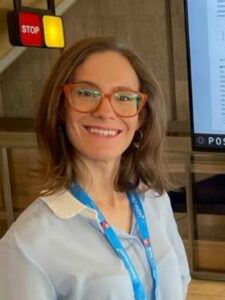 Gabaldón Albero from La Fe Health Research Institute (IIS La Fe, Valencia, Spain) went to Evelina London Children’s Hospital. NHS Guy’s and St Thomas’ Foundation Trust.
Gabaldón Albero from La Fe Health Research Institute (IIS La Fe, Valencia, Spain) went to Evelina London Children’s Hospital. NHS Guy’s and St Thomas’ Foundation Trust.
During the 3 months of the stay, I reviewed the patients referred to the unit from 2007 to 2023. To do this, I carried out a retrospective review of electronic medical records and audiovisual material (videos) of the clinical evaluations. I also participated in the evaluations of the patients seen in the clinic and ward during these 3 months. In this way I collected information about the clinical characteristics of the patients. I also reviewed the genetic studies of patients with primary causes of dystonia and updated the list of those in whom the genetic cause had not yet been detected. In this subgroup I further characterized the phenotype according to the last clinical evaluation to facilitate the analysis of genetic studies. This allowed me to learn about the population referred to this unit, about rare disorders that manifest with complex motor disorders and gain skills in the clinical assessment and description of the phenomenology of patients with complex motor disorders. Furthermore, I collected information on the reasons for deciding whether to proceed or not with advanced therapies such as deep brain stimulation or intrathecal baclofen pump, which has allowed me to become familiar with the patient selection process and work carried out by the multidisciplinary team. Also, during the stay I prepared two presentations: a presentation on caffeine treatment in genetic movement disorders addressed to the pediatric neurology team and personnel in training, and another presentation on the results obtained so far with the analysis of the aforementioned database addressed to the CMDS team. Finally, I would like to point out that this work that I have developed during the fellowship has been selected to be presented in the EPNS research meeting that will take place next October in Slovenia.
Dr Ayberk Selek : Research Fellowship
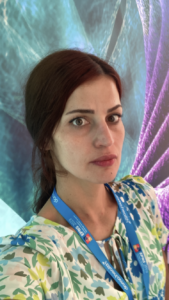 Dr Ayberk Selek from Turkey will be going to the University of Witten/Herdecke, Germany (Datteln)
Dr Ayberk Selek from Turkey will be going to the University of Witten/Herdecke, Germany (Datteln)
Many projects related to neuroimmunological and demyelinating diseases are carried out at Prof. Kevin Rostasy’s institute. I would like to thank him very much for including me in one of these projects and giving me this opportunity. Also many thanks the members of the EPNS Selection Committee for awarding me the 2024 Research EPNS fellowship.
A great comprehensive project is being carried out under the leadership of Prof. Kevin Rostasy, to determine whether there is a diagnostic parameter that will diagnose MS, especially in patients presenting with their first demyelinating attack at prepubertal age. At Kevin Rostasy’s institute, I will study the clinical and radiological characteristics of patients presenting with a first demyelinating attack I will also contribute to this study by including our own patients, whom we followed at Hacettepe University Faculty of Medicine. I would also be very happy to work as part of the his clinic.
My goals with this fellowship program are to gain experience in neuroimmunological diseases, learn current treatment approaches and improve myself in this regard. My other aim is to benefit from Kevin Rostasy’s valuable experience on this subject and gain different perspectives.
I would like to thank Prof. Banu Anlar, Prof. Dilek Yalnizoğlu, Prof. Göknur Haliloglu and Doc. Dr Ibrahim Oncel for their support and guidance.
Dr Dekel Avital: Clinical Fellowship
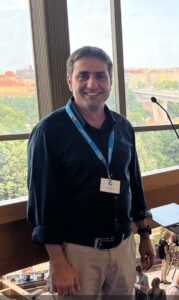 Dr Dekel Avital from Israel will be going to Great Ormond Street Hospital, UK
Dr Dekel Avital from Israel will be going to Great Ormond Street Hospital, UK
I applied for the EPNS fellow scholarship to further my education in the field of pediatric neuroimmunology – a fascinating evolving field which I have a strong desire to explore and to be an expert in , most of all, for the benefit of my patients. My primary objective during this fellowship is obtaining extensive clinical experience in a distinguished leading tertiary/quaternary hospital and to gain extensive knowledge in diagnosis, management and treatment of immune-mediated neurological disorders in the pediatric population.
I hope to be involved in all of the unit clinical activities: This will include attending weekly neuroimmunology clinics, managing neuroimmunology patients on the acute neurology ward / daycare unit and attending all the relevant multidisciplinary associated with the department. I will be exposed to demyelinated/pediatric MS, MOG-Ab, NMOSD, autoimmune/limbic encephalitis and other rare CNS immune conditions.
I am excited about the opportunity to use this scholarship to gain the knowledge and skills needed for a better medical skills. I would like to express my gratitude to Dr Yael Hacohen from Great Ormond Street Hospital and the neuroimmunology unit for agreeing to host and supervise me, and to EPNS for awarding me this distinguished fellowship
Dr Luca Bergonzini: Clinical Fellowship
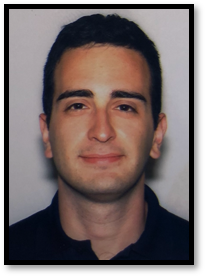 Dr Luca Bergonzini from Italy will be going to Great Ormond Street Hospital, UK
Dr Luca Bergonzini from Italy will be going to Great Ormond Street Hospital, UK
I would like to thank the EPNS Committee for awarding me one of the 2024 Clinical Fellowships. My main goal is to develop extensive clinical and research experience in the field of pediatric neurophysiology and epilepsy, with a focus on continuous EEG monitoring in the intensive care unit. During my fellowship I will join the department of Clinical Neurophysiology at Great Ormond Street Hospital in London. Here I will have the opportunity to deepen my knowledge about continuous EEG monitoring for epilepsy and status epilepticus in neonatal and pediatric intensive care units. I will also engage with the inpatient telemetry and the selection process for epilepsy surgery. Finally, I will participate in clinical research projects to improve my research skills as well. I am grateful to Dr. Boyd and the Senior Staff Committee of the Department of Clinical Neurophysiology at GOSH for agreeing to host me.
Dr Maria Elisa Morelli: Clinical Fellowship
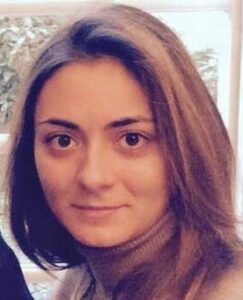 Dr Maria Elisa Morelli from Italy will be going to Sant Joan De Deu Barcelona Children’s Hospital, Spain
Dr Maria Elisa Morelli from Italy will be going to Sant Joan De Deu Barcelona Children’s Hospital, Spain
I would like to thank the members of the EPNS Fellowship Selection Committee for awarding me a Clinical EPNS Fellowship for 2024. I would like to thank also my local supervisor, Dr. Marco Carrozzi, head of the Division of Child Neurology and Psychiatry of the Institute for Maternal and Child Health-IRCCS “Burlo Garofolo” of Trieste (Italy), for allowing me to participate in this selection.
During this fellowship, I will attend the Neuroimmunology Unit of the Sant Joan De Dèu Barcelona Children’s Hospital for three months, under the supervision of Professor Thaís Armangué, head of the Unit, whom I thank for hosting me. I will have the important opportunity to grow my experience in the management of pediatric neuroimmunological diseases, including demyelinating diseases (e.g. Multiple Sclerosis, Acute Disseminated Encephalo-Myelitis, Myelin Oligodendrocyte Glycoprotein Antibody-associated Disease, NeuroMyelitis Optica Spectrum Disorder), autoimmune encephalitis (e.g. anti-NMDAR encephalitis, anti-GABA-AR antibody encephalitis, etc.), neuroinfections, autoimmune diseases of the peripheral nervous system (e.g. Guillain-Barré Syndrome, Chronic Inflammatory Demyelinating Polyneuropathy, etc.), paraneoplastic syndromes (e.g. opsoclonus myoclonus syndrome), and other inflammatory diseases of the central nervous system (e.g. Aicardi Goutieres syndrome, systemic lupus erythematosus, Behçet’s disease, etc.). Through this experience, I will have the opportunity to learn the best diagnostic and therapeutic strategies to adopt in rare and complex neuroimmunological diseases. Moreover, I would be happy to collaborate in the implementation of active research projects in pediatric neuroimmunological disorders.
In conclusion, I am grateful to have been given this opportunity as this fellowship will be a fundamental growth milestone for my work as a pediatric neurologist.
Dr Tinatin Nadiradze : Clinical Fellowship
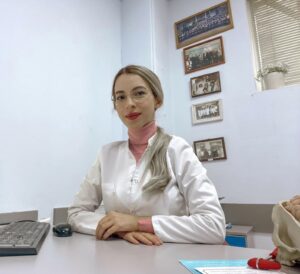 Dr Tinatin Nadiradze from Georgia will be going to Southampton Children’s Hospital, UK
Dr Tinatin Nadiradze from Georgia will be going to Southampton Children’s Hospital, UK
I wish to express my sincere gratitude to the EPNS Fellowship Selection Committee for selecting me for the Clinical EPNS Fellowship in 2024. I firmly believe that becoming a part of a prestigious European pediatric neurology department is essential for my professional and personal growth. The opportunity to examine my favorite subject within a new environment holds significant meaning for me.
Joining as a fellow at Southampton Children’s Hospital, a leading center for child neurology, will provide me with invaluable insights into rare disorders, neonatal and developmental issues, as well as neuro-oncology disorders. I am eager to witness how Neuro-Rehabilitation works after traumatic brain damage. Exposure to these diverse cases will undoubtedly enhance my understanding of how pediatric neurologists excel in diagnosing and tailoring therapies for various disorders.
Dr Rosa Pugliano : Clinical Fellowship
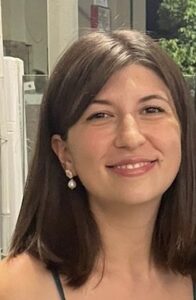 Dr Rosa Pugliano from Italy will be going to IREC, Belgium
Dr Rosa Pugliano from Italy will be going to IREC, Belgium
I will dedicate my fellowship to deepen the electroclinical phenotyping of patients with early-onset epilepsies in order to allow early recognition and personalized therapy approach. I will have the chance to improve my knowledge about
neonatal EEG interpretation, particularly the long-term monitoring in the NICU, which requires ultra-specialized skills and training that will serve me well in my career as a pediatric and neonatal neurologist.
My clinical and research work will constitute the basis for my thesis due at the end of my residency.
I am grateful for the incredible opportunity to work with Prof. Cilio who is a world expert in the field
8 Fellowships Awarded in November 2022 to take place in 2023
Dr Matthias De Wachter: Research Fellowship
Dr Matthias De Wachter from Antwerp University Hospital , Belgium went to the Danish Epilepsy Centre, Denmark and we are delighted to share this report 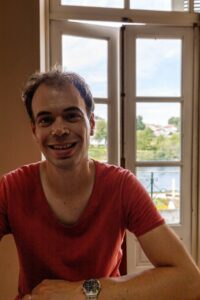
Although it was my intension to work on the phenotype-genotype correlation in RORA, the involvement of another research group working on this gene, made it possible to focus also on other projects. We set up a qualitative research project about the opinions and experiences of clinicians with precision medicine in epilepsy. I conducted interviews with 14 different countries around the world. We set up retrospective studies on precision medicine in KCNQ2/3 GOF and KCNA2 GOF. I also worked on the deep phenotyping of a new epilepsy/ID gene CMIP, and on deep phenotyping of individuals with biallelic variants in FRRS1L. I was able to attend different international conferences to present our work, but also to follow as specific course on genetic interpretation in epilepsy. We visited a genetic lab, got teaching about interpreting of genetic results, and had interdisciplinary meetings about counselling. I talked with parents about their experiences with treatment of rare genetic epilepsies, and learned how to translate these experiences into research. By attending specific courses and the accessibility of the faculty, I feel much more confided how to interpret a genetic results, including using online available tools and interpreting scoring systems for genetic variants. I certainly learned a lot about spike wave activation in sleep and the EEG patterns of specific rare diseases. I learned a lot about the underlying pathophysiological mechanism, ion channel structures and brain excitability, which lay a strong foundation for scientific work in the future.
Dr Jacopo Sartorelli: Research Fellowship
Dr Jacopo Sartorelli from Padova University, Italy went to Great Ormond St, UK, and we are delighted to share this report:
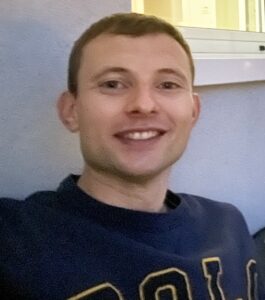 I participated in a project of development and characterization of brain organoids of patients affected by epileptic encephalopathies. During my fellowship I had the chance to learn many different techniques, from cell culture to FACS experiment. I also gained clinical experience, joining prof. Kurian in her Neurogenetic Movement Disorder Clinic at Great Ormond Street Hospital. I could directly participate in a basic research project applying different techniques and becoming independent in doing experiments. Participating in lab meeting I started to learn how to address appropriate questions about research topics, maintaining always a translational approach. I could also see directly many patients with rare neurological movement disorders which I hadn’t seen before during my residency or medical school gaining experience in the motor part of neurologic examination.
I participated in a project of development and characterization of brain organoids of patients affected by epileptic encephalopathies. During my fellowship I had the chance to learn many different techniques, from cell culture to FACS experiment. I also gained clinical experience, joining prof. Kurian in her Neurogenetic Movement Disorder Clinic at Great Ormond Street Hospital. I could directly participate in a basic research project applying different techniques and becoming independent in doing experiments. Participating in lab meeting I started to learn how to address appropriate questions about research topics, maintaining always a translational approach. I could also see directly many patients with rare neurological movement disorders which I hadn’t seen before during my residency or medical school gaining experience in the motor part of neurologic examination.
Dr Pinar Yavuz: Research Fellowship
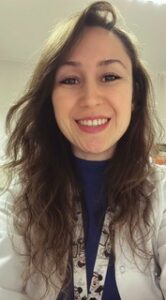 Dr Pinar Yavuz from Hacettepe University. Turkey went to University of Nottingham, UK
Dr Pinar Yavuz from Hacettepe University. Turkey went to University of Nottingham, UK
The aim of my research fellowship was to evaluate the cranial imaging, cerebellar volumetry and clinical assessment of Ataxia-Telangiectasia (AT) patients and compare the patients followed in Nottingham University with those followed in Hacettepe University. This was a great opportunity to acquire a deeper understanding of the disease course and methods of assessment in AT patients. I had the opportunity to participate in a research study on AT (STIM-AT project) which provided me further research experience.I also had the opportunity to look at MRIs of paediatric cases other than AT with Prof Rob Dineen, for which I am grateful.
I regularly participated to paediatric neurology ward rounds and meetings where a multidisciplinary team worked together to discuss complex cases. Being physically present in both clinical and imaging departments, attending multidisciplinary meetings provided examples of team work for my future plans to practice in teaching hospitals.
As the University of Nottingham is the national AT Centre, I saw many AT patients and learned on their methods of evaluation. Participating to research on cranial imaging in AT patients was the aim of our project, as my home clinic. My learning was not limited to AT and was even greater than what I expected; in particular, observation of multidisciplinary work coordinated through several departments will constitute an example for me in my career.
Dr Margherita Bonino: Clinical Fellowship
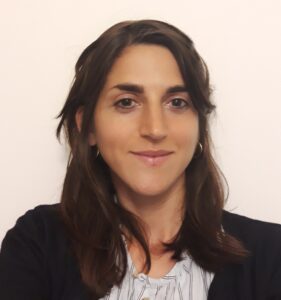 Dr Margherita Bonino from Institute Eugenio Medea, Italy went to Uni Saint- Luc, Belgium
Dr Margherita Bonino from Institute Eugenio Medea, Italy went to Uni Saint- Luc, Belgium
Childhood epilepsy, epileptic and developmental encephalopaties, structural epilepsy: diagnosis, treatment, follow up, management
– Rare genetic neurological diseases: diagnosis, follow up, management
– Neonatal, childhood and adolescent long video EEG monitoring interpretation, discussion and report editing
– Neonatal neurological care: newborns neurological evaluation, long video EEG monitoring of newborns at risk o with suspects of seizures, aEEG interpretation, diagnostic work up of neonatal neurological diseases, seizure treatments management, case discussion with neonatologists/radiologists/geneticists, meeting with families of patients to discuss diagnosis, treatment, prognosis, clinical follow up patients discharged from NICU.
I had the unique opportunity to learn, or at least to observe, a rational, global and curious approach to clinical and research problems led by knowledge, empirical observation, experience but also by continous update from scientific literature and discussion with colleagues. I learnt an open mind approach to medical and scientific problems, always driven by patients needs and best practice, open to learn with humility and change of vision if needed.
I also learnt a human form of relationship with colleagues and a generous and didactic disponibility to share knowledge and experience with others.
Dr Mohammad Kurd: Clinical Fellowship
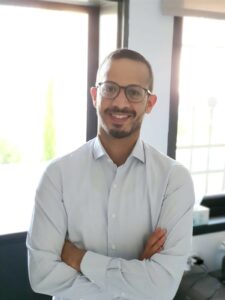 Dr Mohammad Kurd from Hadassah Medical Organisation, Israel went to Great Ormond St, UK and we are delighted to share this report:
Dr Mohammad Kurd from Hadassah Medical Organisation, Israel went to Great Ormond St, UK and we are delighted to share this report:
During this fellowship, under the supervision of Dr. Yael Hacohen I acquired extensive clinical experience in the diagnosis, management, and treatment of paediatric patients with immune-mediated neurological disorders at one of the most internationally renowned paediatric neuroimmunology centres – The Great Ormond street Hospital for Children. I attended neuroimmunology weekly clinics with Dr Yael Hacohen, seen neuroimmunology patients on acute neurology wards and day care units undergoing immune and participated in all relevant MDTs related to the department, including monthly MDTs for MS pan-London and bi-monthly meetings for UKCNID nationally. I also attended weekly meetings of the neuroradiology MDT on the acute neurology ward and the weekly EEG meeting which helped me gain further experience in the management of paediatric neuroimmunology cases acutely, in addition to exposure to general neurology, neurovascular diseases and complex epilepsy cases. I participated in the adult neuro-immunology clinics and contributed to a significant clinical study called PITMS. This experience provided me with a deeper understanding of the various treatment options currently accessible for neuroimmunology disorders, as well as insights into potential future treatments. While participating in the fellowship, we collaborated with colleagues from Israel and the UK under the guidance of Dr. Yael Hacohen to jointly author a paper about MOGAD. We anticipate submitting the paper in the near future.
Dr Ekaterine Kurua: Clinical Fellowship
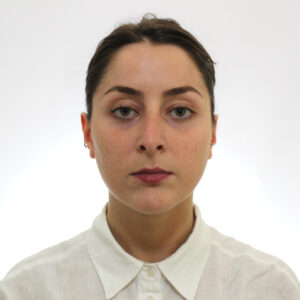 Dr Ekaterine Kurua from Mediclub Medical Center, Georgia went to Necker hospital, France and we are delighted to share this report
Dr Ekaterine Kurua from Mediclub Medical Center, Georgia went to Necker hospital, France and we are delighted to share this report
During the Fellowship period, my research and clinical experience centered on rare disorders and epilepsy. This experience allowed me to deepen my understanding of this field, contributing to both my professional growth and the advancement of knowledge in the field.I had the opportunity to interact with patients experiencing rare disorders, epilepsy, and genetic conditions. Engaging in a captivating project significantly enhanced my knowledge. Actively participating in discussions with exceptional healthcare professionals left a lasting impact on me.I was able to see a lot of patients with metabolic disorders and discus it with metabolic team.During my collaboration with Gia Melikishivili, I had the privilege of meeting Olivier Dulac, formerly associated with Necker Hospital. His profound influence, coupled with the recognition of Rima Nabbout as a renowned global professional, played a pivotal role in my decision to pursue opportunities there.
Dr Melis Ozkan: Clinical Fellowship
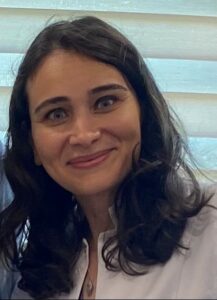 Dr Melis Ozkan from Istanbul Medeniyet University, Turkey went to Epilepsiezentrum Diakonie Kork, Germany and we are delighted to share this report:
Dr Melis Ozkan from Istanbul Medeniyet University, Turkey went to Epilepsiezentrum Diakonie Kork, Germany and we are delighted to share this report:
I was in Epilepsiezentrum Kork as a clinical fellow. During my fellowship, I had a great time with Dr. Bast and his team. I took part actively in daily visits, weekly big round visits, visits with Psychotherapist, Logo, Ergo and Physiotherapists. I had chance to assist the hospitalized patients with admission, with my colleagues and sometimes by myself, I presented in visits and I had chance to discuss patients about etiology, therapies etc. With my defined account, I could reach easily all EEGs, MRIs and theraphy schedules which made me more involved in all process.Video- EEG monitoring. I had chance to see all kind of epilepsy types with different theraphy combinations which made me to have a new point of view. I attended weekly multidisciplinary neuroradiology anf Epilepsy surgey meetings. Epilepsy surgery meeting was which was so instructive for me. Also I learned a lot about Keto-Diet. Apart from the medical point of view, Dr Bast and everyone from his team was so friendly and kind and I always felt as a part of the team.
Dr Teresa Painho: Clinical Fellowship
 Dr Teresa Painho from Hospital Dona Estefânia, Portugal will be going to University of Oxford, UK
Dr Teresa Painho from Hospital Dona Estefânia, Portugal will be going to University of Oxford, UK
Throughout these four months I intend to take part of MDUK – Oxford Neuromuscular Center clinical activity. I plan to be an active part in patient discussion throughout the main neuromuscular disorders including neuromuscular junction diseases, peripheral neuropathies, motor neuron diseases, muscular dystrophies and myopathies in inpatient and outpatient settings. During the fellowship I hope to accomplish my main goal, to deepen my knowledge in pediatric neuromuscular disorders from the diagnosis trough chronic and acute management and consequently sharing and implementing it with my team in Lisbon, Portugal. After this fellowship I hope to consolidate my center specialized motor neuron, myopathies and neuromuscular clinic. I would like to thank EPNS for this opportunity, my whole team, particularly, my mentors Dr José Pedro Vieira and Prof Sandra Jacinto for supporting me and my future host Prof Laurent Servais.
6 Fellowships Awarded in November 2021 to take place in 2022
Dr Hatice Bektas: Research Fellowship
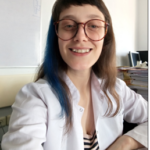 Dr Hatice Bektas from Hacettepe University, Ankara, Turkey went to Southampton Children’s Hospital, United Kingdom and we are delighted to share this report:
Dr Hatice Bektas from Hacettepe University, Ankara, Turkey went to Southampton Children’s Hospital, United Kingdom and we are delighted to share this report:
I completed my EPNS Research Fellowship at Southampton Children’s Hospital’s Pediatric Neurology Department under the supervision of Prof. Brigitte Vollmer. My primary goal was to gain a deeper understanding of neonatal hypoxic-ischaemic encephalopathy and perinatal stroke. I participated in a research project led by Dr Vollmer, investigating the motor outcomes of children with neonatal HIE who received therapeutic hypothermia. Through this project, I had the opportunity to work closely with Dr. Vollmer and her team, benefitting from their expertise and guidance. Thanks to Prof. Vollmer and her entire team’s warm and welcoming reception, I always felt integrated into the department’s daily routine, allowing me to actively engage in all available activities (including NeuroKids-an inspiring public engagement project for schools, and a relay marathon with the neurophysiology team which was extremely fun) and gain valuable exposure to various aspects of paediatric neurology. Attending the neurodevelopmental clinic alongside Dr Vollmer and her team several times per week, where I had the opportunity to evaluate children across different age groups with a variety of perinatal brain results and discuss their examination, interventions, and prognosis, was also extremely beneficial. She walked me through each step of her extremely comprehensive examinations and consultations, allowing me to learn from her vast experience and approaches that I could never learn from a textbook alone. I regularly attended ward rounds where a multidisciplinary team comprised of paediatric neurology, neurosurgery, neurooncology, physiotherapy, neurophysiology, genetics, and psychiatry collaborated to evaluate and discuss complex cases. In addition, I had the opportunity to present at the journal club twice and attend several academic teaching sessions on various topics. It was truly valuable to engage with the team in an intellectually stimulating environment. The constructive feedback and discussions following my presentations have immensely enriched my understanding of the topics I presented. Additionally, I had the privilege of attending a BPNA trainee meeting focused specifically on neonatal neurology, further expanding my knowledge and allowing me to engage with experts in the field. As a conclusion, my Fellowship at Southampton Children’s Hospital’s Paediatric Neurology department, under the mentorship of Prof. Brigitte Vollmer, was an enriching and rewarding experience. Through my involvement in ongoing research, clinical evaluations, multidisciplinary discussions, and academic teaching sessions, I gained a comprehensive understanding of neonatal hypoxic-ischaemic encephalopathy and perinatal stroke, while also honing my clinical skills and broadening my knowledge in paediatric neurology.
Dr Renata Paolilo: Research Fellowship
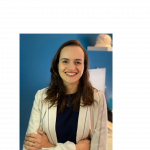 Dr Renata Paolilo from Universidade de São Paulo, Brazil went to Evelina London Children Hospital, London, United Kingdom and we are delighted to share this report:
Dr Renata Paolilo from Universidade de São Paulo, Brazil went to Evelina London Children Hospital, London, United Kingdom and we are delighted to share this report:
During my fellowship, I could focus on the clinical management of various neuroimmune disorders such as multiple sclerosis (MS), MOG-associated disease, autoimmune encephalitis, and opsoclonus myoclonus syndrome. I could experience the patient’s journey in the hospital, from outpatient clinic visits to medication infusions. I joined the weekly ward meetings and neuroimaging meetings. I had the opportunity to present and discuss three cases in a multicentric national case-based session. I was also involved in data collection for a national MS cohort. Importantly, I could discuss some aspects of the research I’m carrying on in my country.
Dr Veronica Pegoraro: Research Fellowship
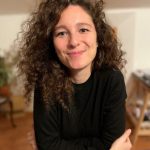 Dr Veronica Pegoraro from IRCCS Istituto delle Scienze Neurologiche, Bologna, Italy went to Université catholique de Louvain, Brussels, Belgium and we are delighted to share this report:
Dr Veronica Pegoraro from IRCCS Istituto delle Scienze Neurologiche, Bologna, Italy went to Université catholique de Louvain, Brussels, Belgium and we are delighted to share this report:
I spent the last eight months of my training in Pediatric Neurology at the Saint-Luc University Hospital in Brussels with the support of Pr. Maria Roberta Cilio. The aim of my research fellowship was the electroclinical phenotyping of neonates with epileptic seizures, in order to obtain early diagnosis and use the most effective treatments. In particular, I focused on a multicenter study on treatment response in provoked seizures in neonates with acute ischemic stroke. This research work constituted the basis for my thesis due at the end of my residency. Although my activity was mainly research, I had the opportunity to collaborate with the service of Pediatric Neurology where I deepened my knowledge in the field of epilepsies, including those with structural, genetic, and metabolic etiologies. Furthermore, through the collaboration with the Neonatal Intensive Care Unit, I learnt the interpretation of long-term EEG monitoring and the management of neonates with acute neurological disorders, but I also had the opportunity to observe and experience the fundamental importance of multidisciplinary approach in the management of this vulnerable population and their families. My research fellow allowed me to acquire ultra-specialized skills and an accurate method to apply to research and clinical work, but what I found was much more, and enriched me infinitely. I am grateful to Pr. Cilio who takes care of her fellow/PhD students with professionalism and affection, and she is really an outstanding mentor
Dr Armenuhi Asatryan: Clinical Fellowship
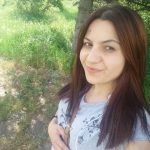 Dr Armenuhi Asatryan from Arabkir Medical Center, Yerevan, Armenia went to Great Ormond Street Hospital, London, United Kingdom and we are delighted to share this report.
Dr Armenuhi Asatryan from Arabkir Medical Center, Yerevan, Armenia went to Great Ormond Street Hospital, London, United Kingdom and we are delighted to share this report.
My main goal was to get more experience in epilepsy. I joined the epilpesy and VNS outpatient and follow-up clinics, telemetry and many MTD meetings, neuromuscular outpatient and follow-up clinics. I had opportunity to attend the Neuroradiology team. It was invaluable experience. The knowledge I’ve obtained will be useful in my future clinical practice.
Dr Ine Hoogwijs: Clinical Fellowship
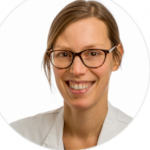 Dr Ine Hoogwijs from UZ Brussels, Belgium went to UMC Utrecht, The Netherlands
Dr Ine Hoogwijs from UZ Brussels, Belgium went to UMC Utrecht, The Netherlands
I spent time in Utrecht starting from January 2022. UMC Utrecht is recognized as Center of Expertise for refractory childhood epilepsy and paediatric epilepsy surgery. The neurology team consists of experienced doctors in this field, so this was a great opportunity for me to perform a clinical fellowship over there. Under supervision of Prof Dr K Braun and Dr F Jansen, I joined consultations in the second opinion epilepsy clinic and refractory epilepsy clinic. Furthermore, I attended multidisciplinary meetings on epilepsy surgery, as well as the grand rounds of admitted neurology patients. I am very thankful for this opportunity offered by the EPNS.
Dr Raluca-Anca Tudorache: Clinical Fellowship
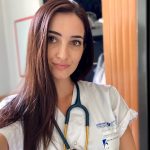 Dr Raluca-Anca Tudorache from “Prof. Dr. Alexandru Obregia” Clinical Hospital, Bucharest, Romania went to Hôpital Necker-Enfants Malades, Paris, France and we are delighted to share this brief report:
Dr Raluca-Anca Tudorache from “Prof. Dr. Alexandru Obregia” Clinical Hospital, Bucharest, Romania went to Hôpital Necker-Enfants Malades, Paris, France and we are delighted to share this brief report:
During the 4 months at Necker Hospital under the guidance of Dr. Kossorotoff, who leads the French Center for Pediatric Stroke, I was able to learn more about cerebrovascular diseases in children, diagnosis and management of acute stroke and I also participated in neurosurgery procedures and interventional neuroradiology procedures. I participated in weekly outpatient paediatric neurology clinics, multidisciplinary meetings and conferences, all regarding the cerebrovascular pathology. I also participated in case presentations / round discussions and expert advice concerning ICU patients. Moreover, we have updated the local protocol for thrombolysis & thrombectomy decision making process in children, a protocol that I hope to implement also in Romania as soon as possible. We have also started research work, which I hope to publish when finished. I am very grateful to EPNS for this opportunity and I would like to thank Prof. Dana Craiu, Assoc. Prof. Catrinel Iliescu, Prof. Jean Bergounioux for their support and Dr. Manoelle Kossorotoff and Prof. Isabelle Desguerre for making this great experience possible.
6 Fellowships Awarded in December 2020 to take place in 2021
Dr Anna Fetta: Research Fellowship
Dr Anna Fetta from DIMEC, Università di Bologna, Italy went to IDIBAPS- Hospital Clínic-Hospital Sant Joan de Déu (Barcelona) Spain and we are delighted to share this report.
During my 4 months fellowship in Barcelona, I deepened my knowledge in pediatric neuroimmunology under the guidance of Dr. Thaís Armangué. My activity has been primarily in research, being involved in the activities of the Pediatric Neuroimmunology Program of IDIBAPS, attending the laboratory of Hospital Clinic. Moreover, once a week I followed dr. Armangué in the clinical activities of the Pediatric Neuroimmunology Unit of Sant Joan de Deu Children’s Hospital. My work has been primarily research focused on various areas of pediatric neuroimmunology. I mainly focused on pediatric autoimmune encephalitis criteria for what will later be my residency thesis work. In addition to the data collection, I had access to laboratory samples and benefited from the knowledge of all the laboratory staff who showed me the different operating procedures of investigation as well as interpreting the different results. I also collaborated with Drs. Thais Armangue and Gemma Olivé, in research on OCT in pediatric demyelinating diseases and in NMDAR encephalitis in pediatric age. Furthermore, I had the opportunity to help Dr. Armangué in her studies on gene expression in postherpetic NMDAR encephalitis and in other autoimmune diseases, thus having the opportunity to deepen the genetics of immune and autoimmune cascades. Having the opportunity to be part of the Pediatric Neuroimmunology group in Barcelona for these few months and follow Thais and Gemma in their research and clinical activities has been a great opportunity that has enriched me infinitely. Beyond the single projects, I will take with me the spirit to always be curious about more ambitious questions and the seriousness and method in applying them to research and clinic.
Dr Barbora Hermanovska: Research Fellowship
Dr Barbora Hermanovska from Charles University in Prague and Motol University Hospital, Czech Republic went to the Paris Brain Institute, France and we are delighted to share this report.
The main focus of my PhD is molecular-genetic diagnostics and genotype-phenotype correlation of patients with focal refractory epilepsy caused by focal cortical dysplasia type I (FCD type I). No specific genetic mutation has been demonstrated to date. During my fellowship at Institut du Cerveau (ICM), I analyzed whole exome sequencing datasets of paired blood-brain-derived DNA of a cohort of 14 pediatric patients who underwent epilepsy surgery in the Czech Republic with histopathologically proved FCD type I. To date, I identified brain somatic variants in 32 genes previously not associated with FCD type I. With the aim to validate these somatic variants, we performed deep amplicon sequencing and its bioinformatic analysis will be available during January 2022. During this fellowship, I was able to learn all the steps necessary to validate candidate genes by deep amplicon sequencing. This will allow me to introduce these techniques to my institute. it was a truly rewarding experience to work under the supervision of both Dr. Stéphanie Baulac and Dr. Sara Baldassari.
Dr Mihaela-Roxana Ioghen: Research Fellowship
Dr Mihaela-Roxana Ioghen from Dr Victor Gomoiu Children’s Clinical Hospital, Romania will be going to Institute of Myology Paris, France
My main goal is general training in clinical research, particularly phase 3 therapeutic studies, with a focus on gene therapies. This implies more aspects, such as training for case report form completion and adverse events declaration. Another related goal is to deepen my knowledge in approaching neuromuscular patients by participating in diagnostic appointments, in their general follow-up and by improving my electromyography skills. Moreover, I will also participate in neuromuscular disorders natural history studies and in scientific article writing.
Many thanks to the EPNS for organizing this excellent fellowship program and giving me this great opportunity. I am grateful to Assoc. Prof. Raluca Teleanu and Dr. Diana Epure, my mentors from Romania for supporting me. Also, I am really grateful to Prof. Odile Boespflug-Tanguy and Dr. Andreea Seferian for hosting me.
Dr Dominika Slawinska: Clinical Fellowship
Dr Dominika Slawinska from The Children’s Memorial Health Institute, Warsaw, Poland will be going to Sant Joan de Déu Hospital, Barcelona, Spain
I got a great opportunity to participate in a clinical fellowship in the Epilepsy Unit of Sant Joan de Déu Hospital in Barcelona. During my 3-month stay my main goal is to broaden my knowledge and gain practical experience in the field of epilepsy. I plan to learn more about assessment of seizure semiology and treatment of epileptic syndromes. I would also like to familiarize myself more with diagnostics, including EEG (especially evaluation and investigations preceding surgery) and genetic studies. I am very thankful to the EPNS Committee not only for this chance, but also for support and tolerance in unfavourable conditions in times of COVID-19 pandemic. Such an experience will let me improve my everyday practice in the Department of Paediatric Neurology and Epileptology. Furthermore, I would like to thank my tutors, especially Prof. Kotulska-Jóźwiak and Dr Borkowska, for motivating me, and Prof. Jaume Campistol Plana and Dr Javier Aparicio Calvo, my future hosts.
Dr Meriem Amina Touil: Clinical Fellowship
Dr Meriem Amina Touil from The University Hospital Center Mustapha, Algiers; Algeria went to Cliniques universitaires Saint-Luc, Brussels, Belgium and we are delighted to share this report:
During the last 6 months in Cliniques Universitaires Saint Luc, my training took place between the Neuro-NICU “Neuro-Neonatal Intensive Care Unit” and the Department of Pediatric Neurology. The focus of my clinical fellowship was mainly on epileptology in neonates and children. I attended pediatric epileptology consultations twice/week with Pr Cilio and once /week with Dr El M’Kaddem. Different cases of Developmental and epileptic encephalopathies, refractory epilepsies, genetic epilepsies, children with neurological issues in the neonatal period (Hypoxic ischemic encephalopathy, Ischemic stroke….) are seen. A part of my time was dedicated to video – EEG monitoring mainly in neonates at the beginning of my training than also in children later. Discussion of protocols and rules of interpretation of different EEG patterns took place once /week under the supervision of Pr Cilio. I also had a unique experience under the supervision of Pr Cilio of reading Video EEG-monitoring and management of seizures during night shifts in neonates with Hypoxic ischemic encephalopathy under cooling, those with provoked seizures, or neonatal onset epilepsies. I also attended Family meetings supervised by Pr Cilio and the neonatology team, the diagnostic, the brain MRI and the prognosis of neonates with Hypoxic ischemic encephalopathy or other neurological impairment were discussed with the family. I attended with the pediatric neurology team weekly meetings about patients admitted in the department of pediatric neurology for different neurological problems, but also multidisciplinary meetings of genetics; once /month where genetic results of different cases of patients with neurological syndromes are discussed. I have been in multidisciplinary meetings of neuro-radiology twice/week with the pediatric neurology team and with the neonatology team. Different cases of pathological brain-MRI of patients admitted in both departments are discussed. I also had the opportunity of attending meetings of epilepsy surgery.
Dr Ketevan Vanadze: Clinical Fellowship
Dr Ketevan Vanadze from 12 Krtsanisi str., 0114 Tbilisi, Georgia will be going to Great Ormond Street Hospital for Children, London, UK
- During my fellowship in Great Ormond Street Hospital I will be able to improve and deepen my knowledge of different diseases in paediatric neurology. The main focus of my fellowship is neurophysiology, especially ENMG and neuromuscular disorders. I will have an opportunity to learn how to perform ENMG studies in children, how to select the suitable technique for each suspected pathology and afterwards how to interpret the results appropriately. As an ENMG is a very important and powerful tool in the assessment and diagnosis of NM disorders in children of different age groups, gained experience in GOSH will improve my medical skills and for the future will help me with making differential diagnosis, management of NM disorders and prognostic information.
6 Fellowships Awarded in December 2019. Due to the Covid-19 pandemic some have been postponed until 2021
Dr Giacomo Garone: Aicardi Fellowship: a special award given to an application of extreme quality. Professor Lieven Lagae who was presented with the Aicardi Award 2019, kindly donated the prize fund to the EPNS fellowship scheme.
Dr Giacomo Garone from Bambino Gesù Children’s Hospital, Italy went to the Movement Disorders Clinic, APHP – Hôpital de la Pitié-Salpêtrière and the Paris Brain Institute, Sorbonne University, Paris, France and we are delighted to share the following report:
My research experience focused on movement disorders. Because of the restrictions imposed by the Covid19 Pandemics, in accordance with my supervisors and the EPNS board I decided to switch my research from a neurogenetic to a neuroimaging project. My project focused on the study of the lateralization of motor control exploring the model of congenital mirror movements (CMM) – a rare neurogenetic disease in which affected patients cannot perform purely unilateral movements. Through a combination of different neuroimaging techniques, including structural and functional neuroimaging, we focused on several different axis. First, we explored the effect of CMM on the shape of the central sulcus, which hosts the primary motor cortex and is known to play a role in the abnormal motor control in CMM. Secondly, we investigated the somatotopy of the normal and the abnormal mirror movements along the motor system, focusing on the primary motor cortex and the cerebellum. Finally, we explored the contribution of the cerebellum to the production of unilateral movements, exploring its connectivity with other brain regions during unilateral and bilateral motor tasks, in both patients and healthy subjects. Meanwhile, I attended part-time the Pitié-Salpêtrière movement disorders clinic. The Salpêtrière Team has a deep and longstanding expertise in all fields of movement disorders, and I had the chance to attend different clinics, including botulinum toxin injections for dystonic patients, the deep brain stimulation service and the multidisciplinary paediatric movement disorder team.
Dr Cristina Forest: Research Fellowship
Dr Cristina Forest from Sant’Anna Hospital, Italy went to UCL Great Ormond Street Institute of Child Health, London, UK and we are delighted to report the following:
The focus of my research was to analyse the electroencephalographic features of patients with inborn metabolic disorders within the firsts 4 months of life. The aim was to identify EEG specific pattern for each disease, that could be complementary to clinical, biochemical and genetic investigations in the acute phase of disease for the diagnostic process. Moreover, we described the evolution of these specific patterns across the first days of life, how they change and what are the underling pathophysiological processes. We also reported seizures specific characteristics for each type of disease. During my Fellowship I had the opportunity to analyse the video EEGs of about 80 patients with inborn error metabolism (collected from January 2002 and December 2019) and, when available, their evolution across the first months of life. I focused on a rare group of neurological disorders that are metabolic errors of metabolism with neonatal onset. I learned about their electroencephalographic aspect but also the clinical, laboratory and therapeutic aspects. In addition, I was able to attend ward rounds and meetings at the Neurophysiology Department of GOSH, and had the opportunity to follow their daily training activities, that range over different areas of paediatric neurology.
Dr Maria Papadopoulou: Research Fellowship
Dr Maria Papadopoulou from University of Thessaloniki, Greece went to Great Ormond Street Hospital for Children NHS, London, UK and we are delighted to report the following:
My research focus during my Fellowship in GOSH was on rare and complex epilepsies. I was involved in two research projects, the one on a novel therapeutic approach for Lennox-Gastaut syndrome and the other one on Rasmussen encephalitis. I have thus gained sufficient knowledge on these disorders by conducting a thorough literature review and at the same time by clinical encounters during the clinics and by reviewing patient’s medical files. I also had the chance to apply research methodology skills and get familiar with the challenges of the preparation of a protocol for a clinical trial focusing on the application of Deep Brain Stimulation in a rare epileptic disorder; I will be in touch with the rest of the research team in order to follow the recruitment and evolution of the project. I have also worked on a systematic review on the available Immunotherapy treatments in Rasmussen encephalitis. The pandemic has led to several meetings being held virtually. I had thus the chance to participate in very interesting and educational meetings in several fields of Paediatric Neurology (Epilepsy surgery, Neurophysiology, Neuro- Genetics, Neuro-oncology, Neuro-radiology, Neuro-vascular, Neuro-sciences etc) weekly. I also attended either in person or virtually the handover and most of the clinical activities of the department. This was a valuable experience and I am thankful to my mentors Pr Evangeliou and Pr Arzimanoglou that have encouraged and supported me to pursue it. I also owe a big THANK YOU to Marios Kaliakatsos and the rest of the Neurology team in Great Ormond Street for being an amazing host and to the EPNS for this opportunity!
Dr Elena Michurina: Clinical Fellowship
Dr Elena Michurina from Institution of the Russian Federation Ministry of Health, Russia will be going to the Royal Victoria Infirmary, Newcastle upon Tyne, UK
During my 3-month clinical fellowship at Royal Victoria Infirmary, Newcastle upon Tyne, United Kingdom, I plan to improve my knowledge of different diseases in pediatric neurology. The main focus will be on management of epilepsy, especially on clinical aspects such as diagnostic and therapy, I hope it will include the interpretation of video-EEG. This experience will improve my medical skills in Russia and help expand my medical views on modern approaches to examination and treatment in pediatric neurology. Many thanks to Dr. Rob Forsyth and the EPNS for this opportunity.
Dr Alisa Nayruzbayeva: Clinical Fellowship
Dr Alisa Nayruzbayeva from National Center for Maternal and Child Health, Kazakhstan will be going to Royal Hospital for Children, Glasgow, UK
My specific area of interest in the department is in developmental and epileptic encephalopathies. In my practice, this group of epilepsies is a great challenge. I want to achieve many goals in the clinical fellowship. I would like to learn an approach to epileptic encephalopathies including an approach to describing the clinical and EEG phenotype of the patients. I want to spend time in a department where I will see many patients and where there is also a research focus. I want to learn how clinical research is done in a centre undertaking descriptions of phenotypes and natural history research and clinical trials. I want to learn about video-EEG video monitoring and the EEG features of early childhood epilepsies. I would like to see how the team in Glasgow approach treatment for different epilepsy syndromes. I want to learn about different genetic testing techniques and how they are evaluated. I know that in Glasgow I can attend general epilepsy clinics, genetic epilepsy clinics, EEG training and genetic epilepsy meetings with lab scientists and geneticists working together. I hope to learn how to evaluate genetic reports and when a variant in a gene is relevant and when it is not. I want to learn about genetic counselling for families who have children with severe early childhood epilepsies. I want to learn which databases and online information can help me with diagnosis and management. I want to better understand the learning and behavior problems children with epilepsy may have and the best way to assess and manage them. I am very grateful to Prof. Zuberi for giving the chance and supporting me. Also, I am grateful to my tutor in Kazakhstan Prof. Jaxybayeva for support my project.
Dr Barbara Siri: Clinical Fellowship
Dr Barbara Siri from Ospendale Infantile Regina Margherita, Italy went to the Vatican City at the Ospedale Pediatrico Bambino Gesù (OPBG) and we are delighted to share the following report:
During my EPNS fellowship, I had the opportunity to deepen my clinical knowledge in Metabolic Diseases and in particular in the diagnosis and management of mitochondrial diseases. I have been involved in a project on a specific group of mitochondrial disease, single large-scale mitochondrial DNA deletions (SLSMDs) as Pearson syndrome and Kearns Sayre syndrome. In particular, we developed a clinical, neuroradiological, neurofunctional protocol able to trace the natural history of this particular group of mitochondrial disease. We examined the neurological involvement of KSS with a detailed neuroimaging and neurofunctional studies. Specifically, we investigated the visual impairment as recurrent feature in KSS with electroretinogram and visual evoked potentials. As these two studies are not able to investigate the optic pathway damage, we also investigate the retrochiasmatic optic pathway alteration in KSS with diffusion tractographic analysis and we found that DTI could be useful in tool to investigate the retrochiasmatic visual impairment in KSS. Moreover, based on clinical symptoms and laboratory findings we decided to investigate the involvement of on bone marrow in SLSMDs. Indeed, we observed, in half of these patients, multiple medullar white matter lesions suggesting a possible role of inflammation with breakage of blood brain barrier in the genesis of white matters lesionsin KSS.
3 Fellowships Awarded in February 2019
Dr Lana Loncar
Dr Lana Loncar from Children’s Hospital Zagreb, Croatia will be going to Bambino Gesu Children’s Hospital, Rome, Italy
I got the opportunity for a clinical fellowship at Department of Neurology, Rare and Complex Epilepsy Unit of Bambino Gesu Children’s Hospital in Rome, Italy. During my 3-month stay, I will attend EEG training course and observe and participate in everyday work of the Department. My goal is to improve my skills in pediatric EEG with a special focus on performance and interpretation of video-EEG. I also hope I will get more experience in dealing with medically refractory epilepsies, learning about their evaluation and different treatment options. My other goal is to deepen my knowledge about genetics since today it is a part of everday clinical epilepsy practice, helping us with therapeutic decisions and prognostic informations.
With experience and knowledge I get, I know I will contribute a lot to my team. I thank dr. Nicola Specchio for agree to host me and mentor me and EPNS for giving me opportunity to fulfill this fellowship.
Dr Daniel Natera
Dr Daniel Natera from Hospital Sant Joan de Déu, Barcelona, Spain will be going to Great Ormond St, London, United Kingdom
During my fellowship in Great Ormond Street Hospital I will be involved in the genetic diagnosis of neuromuscular disorders. I will participate in a project of genomic research in neuromuscular diseases. The objectives of the project are discovering new disease genes, defining the genetic variants in known neuromuscular genes, understanding comparative genetic architecture in different populations, and exploring disease mechanisms. The most sophisticated -omics technologies will be used. I will play a role defining the phenotypes of the patients and correlating phenotype and genotype. This experience will allow me to obtain valuable knowledge and skills for the diagnostic of neuromuscular conditions in the era of next generation sequencing. I am grateful to EPNS for this opportunity.
Dr Nora Szabo
Dr Nora Szabo from Szent János Kórház és Észak-Budai Egyesített Kórházak, Budapest, Hungary went to Addenbrooke’s Hospital, Cambridge, United Kingdom and we are delighted to share the following update from Dr Szabo with you:
Courtesy of the EPNS fellowship I could participate in an interesting international neurogenetic project of which title is “New genomic approaches to explore the neurogenetic disease burden of consanguineous marriages”. Our research could contribute to improve the understanding of the disease burden of consanguineous marriages, looking specifically at inherited neurological disease cases in Turkey with the aim to improve genetic diagnosis for these severe paediatric conditions. By correlation genotype and phenotype, our aim is to find novel disease-causative genetic variants in known disease-genes in addition to identify potential new disease-associated genes.
During the fellowship program I could learn the data analysis method of the whole exome sequencing, the understanding of this special techniqe widens my practice in the neurological diagnostics. Beyond that my knowledge could improve especially in the genetics and diagnostics of inherited neurological and neuromuscular diseases. The results of our research is currently being written uo in an original research paper.
5 Research Fellowships Awarded in February 2018
Dr Maite Gárriz Luis
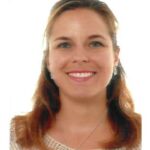 Dr Maite Gárriz Luis from University Clinic of Navarre, Spain went to Université Montpellier, France, and we are delighted to share the following update from Dr Maite Gárriz with you:
Dr Maite Gárriz Luis from University Clinic of Navarre, Spain went to Université Montpellier, France, and we are delighted to share the following update from Dr Maite Gárriz with you:
My focus during my rotation in the Unité des Pathologies Cérébrales Résistantes, Département de Neurochirurgie, Unité de Recherche sur les Comportements et Mouvements, Anormaux, URCMA, Centre Hospitalier Régional Montpellier on learning pharmacological and Deep Brain Stimulation treated (surgical management) of movement disorders in pediatric and adult populations and collaborate in research. The Unit is formed by a multidisciplinary team with neurosurgeons, neurologists, psychiatrist, neuropsychologist, nurses, music therapist, physiotherapist, occupational therapist and paramedical team. All the team assist to the staff on Mondays to discuss the hospitalized patients. Every week there are new hospitalized patients, some of them are de novo and undergo clinical and paraclinical assessments for diagnosis and, to decide whether they are candidates to the deep brain stimulation (DBS) surgery, others for therapy adjustments. There are Movement Disorder clinics, including also patients with DBS. My role there, form the beginning, was comparable with that of local colleagues. I assisted for the hospitalized cases with admission of the cases, with my colleagues and by the end by myself, I wrote the summaries of the cases in the clinical files and discussed the cases with the team. I also attended several DBS surgeries to understand the procedure from the beginning and to “read” the functional neurosurgery/DBS targets. Furthermore, I worked on a data base collecting data for isolated dystonia cases with follow up longer than 10 years to study differences in evolution under DBS. This is the project we submitted for EPNS we will update the society with the outcomes of this work. A case report is also in preparation together with Dr. Cif and will submitted within 2 months. We also submitted an abstract (accepted for presentation) to the Pediatric Movement Disorders Meeting in Barcelona which will be held in February 2019. Definitely, my rotation in Montpellier exceeded my expectations, I could learn what could be a good management of movement disorder patients: the accurate clinical examination, work up for diagnosis, pathophysiology of movement disorders, brain alterations supporting some of these disorders, pharmacological treatment and DBS management. I also could see rare cases and I have learned how to identify them in the future. As well, I had the great opportunity to work in the field of movement disorders research with Dr. Cif, a very experienced and renowned doctor in this field. Apart from the medical point of view, I felt very comfortable from the beginning, I felt as part of the team, they all were really warm and kind. I am very grateful for the opportunity the EPNS brought me and for the great experience I have lived with this wonderful team of Montpellier, I will follow collaborating with them.
Dr Ani Gevorgyan
Dr Ani Gevorgyan from Arabkir MC-ICAH Armenia went to the Royal Victoria Infirmary, Newcastle upon Tyne, United Kingdom and we are delighted to share the following update from Dr Gevorgyan with you:
During this fellowship my primary goal was to deepen my knowledge in peadiatric neurology. I had an opportunity to take part in paediatric neurology outpatient clinics, to follow the diagnostic and treatment processes in the inpatient department, to visit neurophysiology, neurogenetics, neuromuscular, neuroophthalmology and CMT (Charcot Marie Tooth) clinics. In each of these clinics during this 3 mo period I was able to see a lot of patients with difficult-to-treat epilepsy and/or rare neurological disorders, which I could not see during a long period of time in Armenia. I thank again the EPNS for this amazing experience.
Dr Lela Lortkipanidze
Dr Lela Lortkipanidze from Gudushauri Medical Centre, Tbilisi, Georgia went to Great Ormond Street, London, United Kingdom and we are delighted to share the following update from Dr Lortkipanidze with you:
The focus of my fellowship was Neonatal EEG. EEG of the neonatal age is very different from the pediatric and adolescent EEG. I spent almost tree month at GOSH. It was a period full of wonderful experience. I reviewed EEGs under supervision Dr. Pressler and Dr. Boyd. Every day We discussed interesting cases, not only the neonatal age. With fellow Dr. Maria Chalia we did audit about new classification of Neonatal seizures. So it was very productive and interesting period of my life. I am grateful to EPNS for giving me this chance and will do my best to use this experience in my clinical practice in Georgia.
Dr Gonzalo Ramos Rivera
Dr Gonzalo Ramos Rivera from Comenius University, Bratislav, Slovakia went to Hospital Sant Joan de Deu, Barcelona, Spain and we are delighted to share the following update from Dr Ramos Rivera with you:
During the fellowship, I was focused on management of pharmacoresistant epilepsy, especifically on clinical aspects – diagnostic and therapy. We performed also an analysis of the cohort of children with implanted vagus nerve stimulator for the treatment of epilepsy who are followed-up in the Hospital Sant Joan de Déu. In the field of diagnostic in pharmacoresistant epilepsy, I got more experience in EEG reading, seizure semiology, neuroradiology and indication of intracranial EEG, ictal SPECT, neuropsychological examination and Wada test. About therapy, the approach for indication of epilepsy surgery and the selection of the type of surgical procedure was very interesting for me.
Dr Iva Separovic
Dr Iva Separovic from University Clinical Hospital Center Sestre milosrdnice, Zagreb, Croatia went to University Medical Centre Groningen, the Netherlands and we are delighted to share the following update from Dr Separovic with you:
During the fellowship period here I participated in the IMP-SINDA Project: assessment of infants aged 2 to 18 months with two novel neurodevelopmental tests, the Infant Motor Profile(IMP) and Standardized NeuroDevelopmental Assessment(SINDA). The infants assessed in order to collect normal data for methods. The IMP is video-based method that assesses motor behaviour in five domains: variation, adaptability, symmetry, fluency and performance. The SINDA is a neurodevelopmental screening test for infants aged 2-12 months. The SINDA has three scales, a neurological, a developmental and a socio-emotional scale. The study supervised by Prof.dr.Mijna Hadders-Algra and Dr.Kirsten Heineman. We assessed children from different parts of the Netherlands. I learned the whole procedure, i.e., how to record and how to assess. We assessed also general movements and discussed about predictive validity and clinical implications of the information. During my stay we have analysed several hundreds of children.
2 Research Fellowships Awarded in February 2017
Dr Alice Dica
Dr Alice Dica from Al Obregia Hospital, Romania went to UZ Brussel, Belgium, and we are delighted to share the following update from Dr Dica with you::
This fellowship offered me the opportunity to improve my knowledge in malformations of cortical development area, to meet and learn from Prof Anna Jansen, an extraordinary, kind person and an expert in this field, and her team – beautiful and entuziastic, to make phenotype-genotype correlation for early diagnose, then share my experience with my colleagues from Pediatric Neurology Clinic from Bucharest.
During my fellowship I was participating at clinical and genetic evaluation of MCD patients, MRI’s evaluations – looking for the “clues” for genetic testing, discussing with geneticist what test to choose, then discuss results with parents – genetic advise, multidisciplinary team evaluation and early intervention for a good quality of life and psychological support for patients and their families, different treatment options. Also we were part of the team for advising regarding cases of MCD’s on fetal MRI.
In the last part of my fellowship the focus was on the schizencephalies – literature review and hopping, in the future, for genetic testing of our departments patients, in order to establiesh some phenotype-genotype correlation, and also other MCD’s projects.
Thank you Prof Anna Jansen and your team for making me love more and more, each day, MCD’s field.
Dr Marta Gomez Garcia de la Banda
Dr Marta Gomez Garcia de la Banda from Vall d’Hebron University Hospital, Barcelona, Spain went to Hopital Raymond Poincare, France and we are delighted to share the following update from Dr Marta Gomez Garcia de la Banda with you: :
My fellowship was undertaken at the Neuromusuclar Unit in Raymond-Poincaré University Hospital, which is the French Reference unit for early-onset neuromuscular disorders.
The goal of my project was to improve the phenotyping of congenital muscle dystrophies and congenital myopathies.
From the beginning of my stay I was involved in the neuromuscular consultation, wich allowed me to deep in my knowledge of certain pathologies and gave me the chance to see a wide variety of very characteristic phenotypes that I had never seen before. That was amazing and will be very useful to me in the future in order to be able to diagnose some neuromuscular disorders.
I was also able to learn about the wholistic management of the neuromuscular patients, their complications and their follow-up from a multidisciplinar point of view.
I had the opportunity to take part of the team treating Spinal Muscular Atrophy and this allowed me to deepen the different phenotypes of the disease.
I had also the chance to present different clinical cases at the World Muscle Society Congress and at a Congress of laminopathies, and show our experience with the treament of SMA at the Myology French Congress.
It has been an extraordinary period where I learned much more than I expected.
Fortunately, I will be able to stay here working with the team, which will allow us to advance in our preliminary results and show them in next meetings. I am very grateful to Professor Quijano-Roy and her team for such a motivating learning experience and I am thankful to the EPNS fort his great opportunity.
4 Clinical Fellowships Awarded in February 2017
Dr Olena Apanasenko
Dr Olena Apanasenko from Kyiv Childrens’ Hospital, Ukraine went to the Royal Hospital for Children, Fraser of Allander Neurosciences Unit, Glasgow, United Kingdom and we are delighted to share the following update from Dr Apanasenko with you:
During the fellowship main focus of my clinical experience was ketogenic diet in treatment for rare and complex epilepsy. I attended ketogenic clinic which is comprises collaborative work of neurologist and dietitian. I worked with dietitian separately in order to achieve understanding how to calculate the diet and how to fit it. I’ve got understanding how to prepare patient for the dietetic treatment, how to calculate classical ketogenic diet, how to monitor patient on ketogenic diet, how to use modified ketogenic diet in older group of children. I was involved in work of genetic epilepsy clinic in Glasgow which comprises collaborative work of paediatric neurologist and clinical geneticist. This is taught me to look at diagnosis of epilepsy more precisely.The main focus of my research work was GLUT1 deficiency and I am planning to continue this research work in future. At the moment I’m working on the article regarding an early diagnosis of GLUT1 deficiency. I’ve learnt about new advances of genetic diagnosis in epilepsies and how it could be beneficial for patients in terms of treatment strategies, for example for patients with SCN1A mutation, KCNQ2 mutation, SCN2A mutation, GLUT1 deficiency etc. . I was also indroduced to the role of nursing staff in inclusion patients with epilepsies to the nursery and schools and in supervising them during the treatment. I’m noticed importance of individualized acute management plan of seizures for patients with epilepsy. Also I’ve got some clinical experience in diagnosis and treatment of autoimmune disorders such as ADEM, HBS. I was indroduced to multidisciplinary approach in management and diagnosis of neuromuscular diseases which is also beneficial. I’ve seen a lot of patients with rare diseases such as EA1, DMD, CMD, adrenoleucodystrophy etc. I’m feeling very grateful for the opportunities to study which EPNS and neurological team in Glasgow gave me. Thank you so much!
Dr Thomas Foiadelli
Dr Thomas Foiadelli from Fondazione IRCCS Policlinico S. Matteo, Italy went to the University Hospital of Leuven, Belgium and we are delighted to share the following update from Dr Thomas Foiadelli with you:
My Clinical Fellowship was aimed at training in Pediatric Neurology with special focus on epilepsy, in the University Hospital of Leuven (Belgium).My main objectives were to improve my clinical and semeiological skills in pediatric epilepsy, including video-EEG and polygraphic monitoring, and to gain competence and autonomy in pharmacological and non-pharmacological epilepsy management.Once in Leuven, I found much more.The entire neuro-team made me feel like “part of the family” since the very first day, excitingly merging me into pediatric neurology day by day.I got involved in the regular activity of the Neuropediatric Service with a varied schedule of activities: I attended General Consultations twice a week, and I followed the weekly Neuromuscular and Spina Bifida multidisciplinary consultations, which also involved the Orthopaedic, Urology, Kinesiotherapy, Ergotherapy, Psychology, Specialized Nursery and Social Service team. This gave me the opportunity to see an extremely wide variety of pathologies, and taught me once again how strikingly a team-based holistic multidisciplinary approach can make the difference in improving quality of care while dealing with complex diseases. One day per week was dedicated at 24-hours EEG reading and neonatal EEG reading, and epilepsy diagnosis and management during the Epilepsy Consultations. It improved my competence, my skills and my independence, notably in dealing with refractory epilepsy.As a senior assistant, I also had tasks regarding inpatient consultations in the Pediatric and Emergency Units. I attended regular multidisciplinary meetings concerning prenatal care, neurosurgery, neuroradiology, neonatal care and epilepsy surgery.Finally, during my stay, I had the opportunity to attend two outstanding scientific Courses: one on Brain Networks in Epilepsy Surgery, and the other about Vagal Nerve Stimulation (VNS) therapy. What else could I say? I’ve learned a lot, had much fun, made very special friends, shared different points of view, tasted fantastic beers and eaten a bunch of fries (please, stop calling them “French”: no doubt they’re “Belgian fries”) .I wish to thank Prof. Lieven Lagae, Katrien Jansen, Marlies Potoms and all the neuro-team for their kindness, enthusiasm, curiosity and wisdom.
Dr Katerina Gaberova
Dr Katerina Gaberova from University Hospital “St. George”, Bulgaria will be going to Uniklinik RWTH Aachen, Germany:
Already during my first years of residency in paediatric neurology I became interested in neuroscience and particularly in questions tackling the propensity of the human brain for plastic changes. Thanks to the EPNS Scholarship Program I now have the opportunity to join the team of the fMRI – laboratory In Aachen/Jülich to further deepen my knowledge and special skills in non-invasive human brain imaging and study their application into understanding the mechanisms of structural and functional brain plasticity. Making advantage of the established sophisticated technology allowing for unprecedented image quality I want to learn and further develop data analysis methods to get new insights of the brain macro-/microanatomy and their link to brain function. Most importantly, I want to successfully transfer the gained know-how to our new fully research-dedicated MRI imaging platform at the Medical University Plovdiv.
Dr Elena Maqueda
Dr Elena Maqueda from Hospital Sant Joan de Déu, Barcelona went to the Hopital Femme Mere Enfant in France and we are delighted to share the following update from Dr Elena Maqueda with you:
The focus of my clinical fellowship was improving my knowledge in the field of clinical epileptology and electro-encephalography in children of different age groups. Becoming familiar with the recognition of EEG patterns, both interictal and ictal, in neonates and infants. Gaining a better understand the electro-clinical definition of the various epilepsy syndromes and better identify optimal diagnostic workup for each.
Allow me to thank the EPNS for this unique opportunity to perform my fellowship in another country of the European Union. This unique experience will not only allow me to improve my knowledge in the field but also to develop a European network at the service of global epilepsy care.
3 Clinical Fellowships Awarded in March 2016
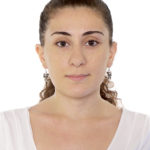 Dr Miriam Abuladze from Georgia went to the Epilepsy Centre in Kork, Germany and we are delighted to share the following update from Dr Miriam Abuladze with you:
Dr Miriam Abuladze from Georgia went to the Epilepsy Centre in Kork, Germany and we are delighted to share the following update from Dr Miriam Abuladze with you:
The reason for my clinical fellowship was to get practical experience in implementation of Ketogenic diet as a treatment method for drug-resistant epilepsy. I work in Tbilisi children’s central hospital at the neuroscience department. Until now we did not the Ketogenic diet as a treatment option for epilepsy. My main purpose is to start this treatment method when I go back to my country.
During my stay at the children’s epilepsy center Kork I had an opportunity to see many patients on ketogenic diet. Both Classical ketogenic diet and modified Atkins diet are intensively used in Kork Children’s hospital. I learned about the starting of diet, it’s implementation, observation on a patient during the start-up, management of complications and long-time follow up. The Kork Children’s Hospital gave me an opportunity to get great clinical experience in implementation of Classical Ketogenic diet and Modified Atkins diet in epilepsy resistance patients. I learned a lot not only about the Ketogenic diet but also the general management of severe epilepsy cases. Also, the Kork Children’s epilepsy hospital is Center of TSC (tuberous sclerosis complex ) and I got huge experience in management of patients with TSC. I am very thankful for EPNS for giving my such a chance to get clinical fellowship at such a qualified epilepsy children’s center of Kork
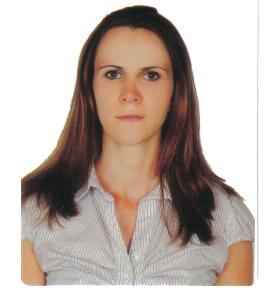 Dr Silvana Kau from Albania went to Istitituo Di Ricovero E Cura A Carattere Scientifico in Italy and we are delighted to share the following update from Dr Silvana Kau with you:
Dr Silvana Kau from Albania went to Istitituo Di Ricovero E Cura A Carattere Scientifico in Italy and we are delighted to share the following update from Dr Silvana Kau with you:
During my fellowship I was able to deepen my knoledge in epilepsy and in particular in the semeiology, correct diagnostic workout (including genetic aspects), to perform and read EEG records, and implement the right dose and type of antiepileptic drugs. A part of my clinical experience concerned also the altenative therapy of drug resistant epilepsy with Ketogenic Diet and a deeping on GLUT1 deficiency syndrome on which I collaborate to write a paper (Cognitive aspects in GLUT1DS, submitted). I attended the neonatal intensive care and outpatient follow-up of preterm infants .
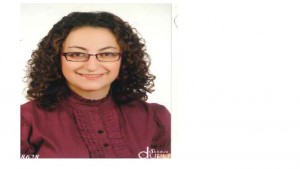 I am very grateful to EPNS for this opportunity. My primary focus is pediatric movement disorders. My aim is to learn about the semiological assessment, the diagnostic decision-making process for these patients, and observe treatment strategies like intrathecal baclofen pump and deep brain stimulation. I plan to deepen my knowledge on evaluation of movement disorders under the supervision of Dr Jean-Pierre Lin, at Evelina Children’s Hospital, London.
I am very grateful to EPNS for this opportunity. My primary focus is pediatric movement disorders. My aim is to learn about the semiological assessment, the diagnostic decision-making process for these patients, and observe treatment strategies like intrathecal baclofen pump and deep brain stimulation. I plan to deepen my knowledge on evaluation of movement disorders under the supervision of Dr Jean-Pierre Lin, at Evelina Children’s Hospital, London.
3 Research Fellowships Awarded in March 2016
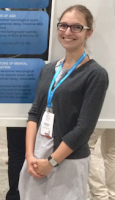
Dr Barbora Benova from Czech republic went to the Great Ormond Street Institute of Child Health UCL in London, United Kingdom and we are delighted to share the following update from Dr Barbora Benova with you:
I aimed to learn from the experience of Great Ormond Street Hospital to be able to extend my expertise in research of malformations of cortical development (MCD). With the collaboration of Dr Jacques and his team we designed a gene panel consisting of genes mutated in MCD and brain tumours. Furthermore, I could participate in clinical meetings, and therefore gained insight into the decision process in patients undergoing epilepsy surgery and in patients with brain tumours. I attended multiple teaching sessions and had the opportunity to extend my expertise in both clinical paediatric neurology and basic research in epileptology. I gained experience in laboratory work and was responsible for designing a gene panel for evaluation of patients with malformations of cortical development. I had the opportunity to participate in the meetings and teachings of Great Ormond Street Hospital palliative care team, and could therefore extend my knowledge on paediatric palliative care for children with chronic and incurable neurological conditions. We agreed to continue the collaboration between our centre and ICH. I had the best experience.
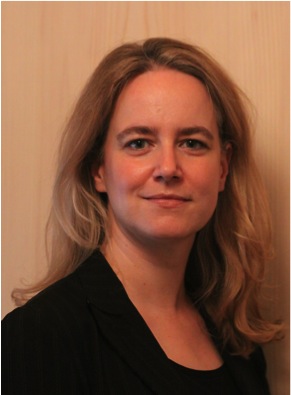 I am delighted and very grateful to have been awarded an EPNS fellowship! The focus of my research lies on childhood stroke. Improving my skills in (1) creating clinical and epidemiological studies, (2) the technique of transcranial ultrasound and (3) learning about the medical care structure of patients with childhood stroke will be the aim of the six week fellowship with Mr Finbar O´Callaghan at the UCL Institute of Child Health / Department of Clinical Neurosciences and Great Ormond Street Hospital, London.
I am delighted and very grateful to have been awarded an EPNS fellowship! The focus of my research lies on childhood stroke. Improving my skills in (1) creating clinical and epidemiological studies, (2) the technique of transcranial ultrasound and (3) learning about the medical care structure of patients with childhood stroke will be the aim of the six week fellowship with Mr Finbar O´Callaghan at the UCL Institute of Child Health / Department of Clinical Neurosciences and Great Ormond Street Hospital, London.
Dr Petra Grđan from Croatia went to the Hopital Femme Mere Enfant in Lyon, France, and we are delighted to share the following update from Dr Petra Grđan with you:
Durin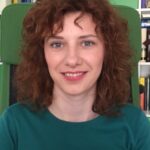 g my Fellowship period I was involved in everyday clinical work, management of patients with pharmacoresistant epilepsies and discussion about selection of surgical candidates among them. I participated on staff meetings where very interesting clinical cases were present in the field of newborn epileptic seizures, genetics and epilepsy, farmacoresistant epilepsy, autoimmune encephalopathies, epileptic syndromes. I learned about the EEG analysis, analysis of EEG monitoring and EEG of premature born children and maturational features.
g my Fellowship period I was involved in everyday clinical work, management of patients with pharmacoresistant epilepsies and discussion about selection of surgical candidates among them. I participated on staff meetings where very interesting clinical cases were present in the field of newborn epileptic seizures, genetics and epilepsy, farmacoresistant epilepsy, autoimmune encephalopathies, epileptic syndromes. I learned about the EEG analysis, analysis of EEG monitoring and EEG of premature born children and maturational features.
3 Fellowships Awarded in May 2015
Dr Constantinos Anastasopoulos from Germany completed a fellowship in C.J.Gorter Center for High-field MRI, Leiden, The Netherlands, and we are pleased to share the following update from Dr Anastasopoulos with you:
‘The research focused mainly on MR-imaging of the skeletal muscle. I was from the very beginning involved in a new project on muscle-perfusion imaging and contributed to the direction the project took during my stay. My activities involved operating the MR scanner, adapting the exercise apparatus that was needed for the experiments, communicating with the programmers that helped us build and program the force transducer needed for the measurements and adapting analysis software for the MR data. Short meetings of the involved researchers were held almost every week, where I was given the opportunity to present new results. I also presented and discussed the procedure and data in the scheduled meetings of the department. In this period I submitted an abstract to three conferences, both scientific and clinical. I also visited the ‘Duchenne clinic’ of the paediatric neurology, that takes place every 4 weeks. I wanted to deepen my knowledge in scientific methods I am also using at my home university and was open to learn a new method as well. Both goals were achieved. I also wanted to work independently, but at the same time in close collaboration with the rest of the scientific team. The Gorter Center was the perfect setting to achieve these goals.
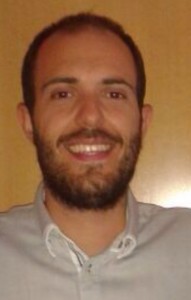
Dr Fernandez Garcia from Hospital Infantil Universitario Niño Jesús, from Madrid (Spain) has now completed his fellowship at Hopital Neckar, Paris, France, and we are delighted to share the following update from Dr Fernandez Garcia with you:
My Fellowship was aimed at training in Neuromuscular (NM) Disorders in a National Reference Centre. I got involved in the regular activity of the Neuropediatric Service at Hôpital Necker-Enfants Malades from Paris, with a varied schedule of activities: I was attending the NM Consultation 2-3 times/week, then the Electroneuromyography (ENMG) Consultation twice/week and participating in procedures such as Muscle Biopsies and other meetings from the Department, such as the Neuroradiology or the Mitochondrial Staffs.
At the Neuromuscular Consultation I was able to see how the general management of patients with NM disorders is undertaken, and how the follow-up is performed. I was lucky to see a wide variety of different pathologies, which was of great importance to set in my mind the most characteristic clinical pictures for diagnosis. Another important thing happening at the NM Consultation is the “First visit”-consultation, where I had the opportunity to get an approach to differential diagnosis of NM disorders and its initial work-up studies. But most important of all, I was to be able to see how the experienced advice plays a major role for NM patients, how important the multidisciplinary team is and how important the general and standard care are for every patient’s quality of life.
Secondly, I took part at the ENMG Consultation. There, I had the opportunity to learn the basics on how to perform ENMG studies in children, how to select the suitable technique for each suspected pathology after a careful examination and how to interpret the results appropriately. I had the chance to perform from facial studies, including pharynx and diaphragm evaluation, to more distal procedures on limbs. The most important thing that I realized by performing ENMG studies, which made it really worth learning, was that in children it is really crucial to well correlate the clinical picture with the suspicion and the findings.
I also had the opportunity to learn how to perform Muscle Biopsies with sedation on a “short-stay” basis at the hospital.
Apart from this, my Fellowship involved a lot more scientific meetings and multidisciplinary learning. I joined weekly the Neuroradiology Staff, where all the interesting cases were discussed. I also joined on a week basis the Mitochondrial Staff, where cases were both presented for discussion and after successful diagnosis. I joined as well the Neuroorthopedic Consultation, critical for NM patients, which often associated problems on their column or limbs, and it was leaded by the Orthopedist in close cooperation to the Neurologist in charge. I took also advantage of being in a big reference centre for Pediatric Neurology and participated occasionally on General Neurology Consultations, Vascular Disorders Consultation and joined the visit of admitted patients.
I will never be able to thank enough Isabelle Desguerre, Cyril Gitiaux and their team for such a warm reception and motivated teaching.
Summary of the focus of research and clinical experience
Head: Volker Straub, Hanns Lochmueller, Kate Bushby, Rita Horvath
The centre contains 5 Teams: Clinical, Diagnostic, Clinical Trials, “Perclinical” (Laboratory, basic research), Networking.
Specialty: LGMD UK-wide.
Patients> ca. 1200-1500 NMD, 85% genetically confirmed .
(Mitochondriopathies, Ataxias and other neurogenetik are part of neuropediatrics.
Frequency of diagnosis: Myotonic Dystrophy Type 1 (much less Typ 2): ca. 400 patients, DMD/Becker-Kiener, FSHD, SMA, LGMDs (ca. 6%), nat. Ref, Neuropathies
All different teams were visited.
1) outpatient clinics: general muscle diseases (adults), general muscle diseases (children), myotonic dystrophy clinic, Special consultation LGMD , special consultation hour congenital myasthenic syndromes (Lochmueller). special interdisciplinary consultation hour arthrogryposis (Straub), Myo-MRI-Meeting, Muscle-MRI: Comparison to publications (Straub, Wattjes,(Jungbluth), Book “Neuorimaging”, Clinical Neurophysiology with Roger Whittaker. James Miller Clinic (Inclusion Bodz Myositis, unclear neuropathies Multifocal motor neuropathy CIDP .
2) diagnostic team: molecular genetics: Most is done in-house. (Sanger-sequencing), NGS projects: Neuromics (Iceland), MyoSeq and SeqNMD (Broad Institute Boston). 100000 Geneomes project: ( Cambridge). Biopsy Team: National for all patients with LGMD. Standard histology, Electrone microscopy, staining of 25 antibodies.
2 Fellowships Awarded in January 2015
Dr Diana Barca
Dr Diana Barca from Dr Alexandru Obregia Hospital in Romania has now completed her fellowship in Belgium, and we are delighted to share the following update from Dr Barca with you:
I have joined Professor Linda De Meirleir and her team in the Free University Hospital of Brussels for 4 months, an extraordinary period in which I enriched my medical knowledge, I met wonderful people and have established close professional and friendship relations. During time spent at VUB , I joined the consultations, both general pediatric neurology and metabolic diseases clinic , seeing a wide range of genetic, metabolic pathology and thus completing the theoretical knowledge with practical clues. In this way I managed to set algorithms depending on each case presentation reason (hypotonia, epilepsy, movement disorders, systemic involvement, dysmorphism), diagnostic schemes for various metabolic diseases depending on the clinical picture. Also starting from cases seen and followed up in the VUB clinic I understood the importance of the neonatal screening and the organization of the system which applies it in Belgium, collecting valuable information that I will try to apply in my country – following premature babies and newborns at risk being a field of high interest for me. I witnessed a very well developed system of cooperation between various national and international centers, Professor De Meirleir mediating for me and through me for all my colleagues the establishing of a network. This will facilitate the diagnosis of metabolic disorders in our little patients with suspicion of lysosomal diseases , disorders of neurotransmitters, aminoacidopathies , organic acidurias, mitochondropathies . A number of severe cases from our clinic have already been investigated while I was at VUB and precious help was offered in order to reach a diagnosis and offer a better quality of life. The basis for a permanent collaboration between VUB and the clinic I come from (Alexandru Obregia Hospital, Carol Davila University, Bucharest) was established and we hope to start it from 2016 as a tutorship program, focused on metabolic disorders (Professor De Meirleir) and also on brain malformations (Professor An Jansen). A very important achievement in a completely different field was networking with IPG (Institut De Pathologie et Genetique ) Gosselies related to epileptic encephalopathies cases, hoping in a further close collaboration through an official research project with the similar center in Bucharest. The time spent in Belgium meant more than just a wonderful, exciting professional experience – it added new meanings to the notion of human values : I was warmly welcomed by Professor De Meirleir, integrated as a colleague with equal rights in her team, meeting not only highly skilled doctors, but also wonderful people and friends. I am grateful to everybody for turning this 4 months into life to remember experience and I am thankful to the EPNS for offering me this extraordinary opportunity.
Dr Monika Kukuruzović, Zagreb from Croatia who will be spending the Fellowship in the UK.
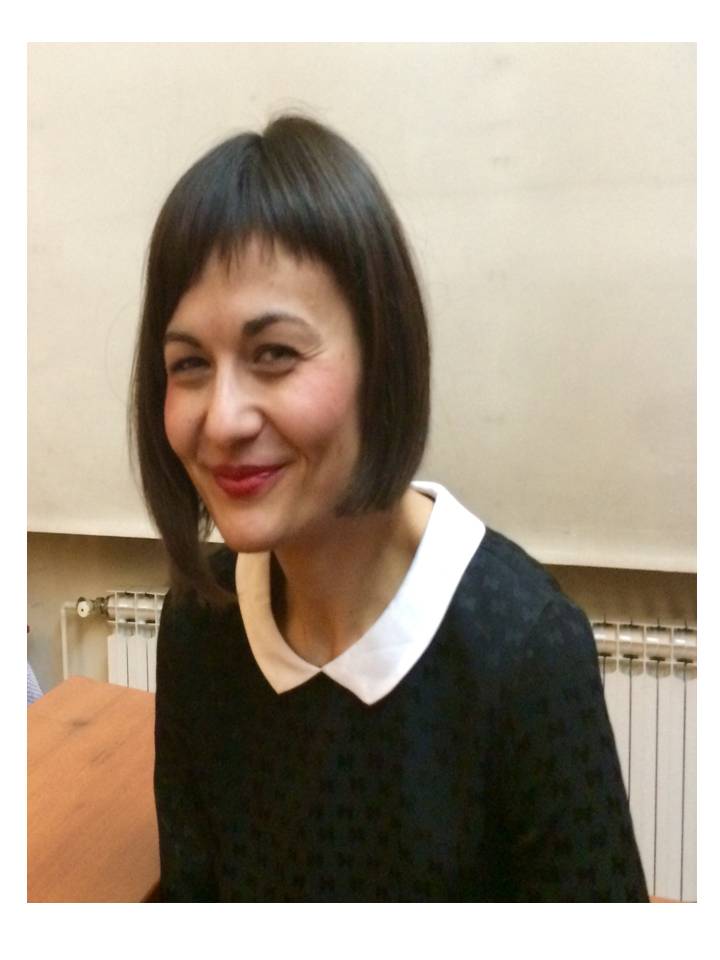
I have always had an interest in child neurology and ever since my formal Paediatrics residency ended in January 2012, I became a formal member of Child neurology team at our Clinic. Working and gaining experience in child neurology gave me opportunities for publishing papers and actively participating in congresses and symposiums in Croatia and abroad. In my desire to broaden the scope of my education I have been enrolled in PhD program since September 2012 and have been working on a thesis titled: Association between types of epilepsy with polymorphism of ApoE genotype in children.
3 Fellowships Awarded in 2014
Dr Carmen Sandu
We were delighted to receive feedback from Carmen Sandu from Romania who was successfully awarded an EPNS fellowship in 2014. Her fellowship was undertaken at Great Ormond Street in the UK, and this is what she had to say:
I had a special interest in complex epilepsy service with focus on the ketogenic diet. This fellowship gave me the opportunity to understand what a proper ketogenic diet service means, not only the way the service is organised but also getting inside the clinical and theoretical aspects of ketogenic diet. My main target was at the end of this training to be able to implement and manage ketogenic diet in our patients and I think this was achieved. The experience was absolutely great giving me the opportunity to access ketogenic diet clinics, in close contact with the patient, observing the way they are managed from the beginning, the way the ketogenic diet is implemented for each patient and also the way they are supervised.
I also had the opportunity to complete an audit project regarding the ketogenic diet service for patients enrolled in the last 2 years. There are of course the established connections with professionals I can always rely on if I have further questions in what I want to do. I was also very fortunate to access other complex epilepsy clinics, epilepsy surgery clinics, telemetry, neurology clinics and also neurosciences meetings with various topics, all at very high standard and extremely important.
We were delighted to receive feedback from Dr Adriana Ulate-Campos from Costa Rica who was successfully awarded an EPNS fellowship in 2014. Her fellowship was undertaken in Italy, and this is what she had to say:
My fellowship was undertaken at the Claudio Munari Epilepsy Surgery Center in the Niguarda Hospital and in the Fatebenefratelli Pediatric Epilepsy Unit in Milan, from February until June 2015. The goal of my fellowship was to complete my training in pediatric epilepsy, video-EEG monitoring and its accurate interpretation and to learn about epilepsy surgery in order to be able to work in an epilepsy unit. I was able to attend a pediatric epilepsy clinic where I became familiar with the management of the most common pediatric epileptic syndromes. I was able to learn about the different EEG montages and how are they chosen, as well as the importance of different filters. I am now able to recognize several artifacts. I learned about the normal waking and sleep EEG patterns, from neonates to adults, as well as the appropriate terms to describe them; and to differentiate them from the abnormal patterns. I became familiar with the structure of the EEG report and with all these elements I could write the EEG report by myself. I also gain knowledge as to when should a patient be referred to an epilepsy surgery unit and attended the pre- and postsurgical clinics. I observed all the process of stereo-EEG, from the deep electrodes placement to the resective surgery. I became familiar with stereo-EEG and the electric patterns of the principal brain areas registered by deep electrodes. I attended the weekly discussion of epileptic patients in order to decide if they were surgery candidates and the best surgical approach. I believe my original goal was accomplished and I want to thank the EPNS for this great opportunity.
We were delighted to receive feedback from Dr Lyudmila Yepiskoposyan from Armenia who was successfully awarded an EPNS fellowship in 2014. Her fellowship was undertaken at Univ. Children’s Hospital Gasthuisberg in Belgium from January until April 2015.
The aim of her study was EEG training, which is not included in her residency programme. Dr Yepiskoposyan said it was a great opportunity for her to become familiar with the technique of performing EEG and basics of EEG reading. She also had an opportunity to see patients with epilepsy, to understand use of EEG in the diagnostic work up and to increase knowledge on the principles of therapy in epilepsies as well as also new approaches in the management of these patients. Dr Yepiskoposyan learnt the principles of different montages, how to perform provocation methods, waking and sleep EEG patterns, to recognize epileptic and non-epileptic sharp phenomena, benign variants and artifacts. In addition to concentrating on what she set out to learn Dr Yepiskoposyan also had a possibility to choose a certain type of epilepsy (infantile spasms) and to read a significant amount of these EEGs in order to be ready for much more detailed interpretation. She has read several EEGs of the same patient and could see the evolution of different seizure types. Dr Yepiskoposyan has thanked the EPNS for this opportunity!
